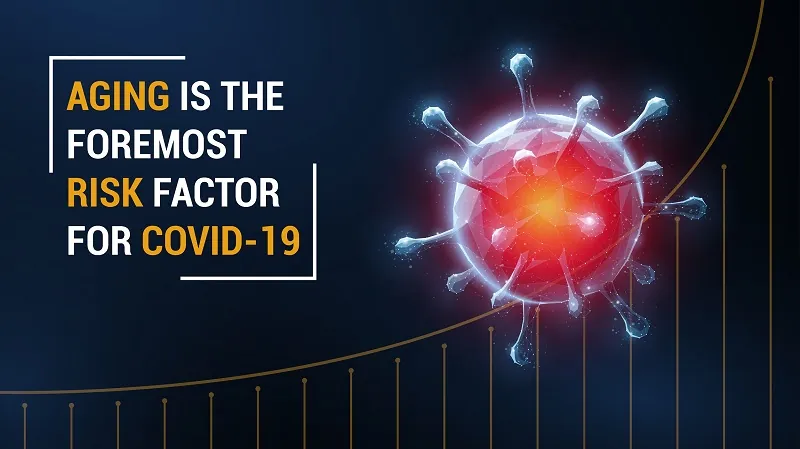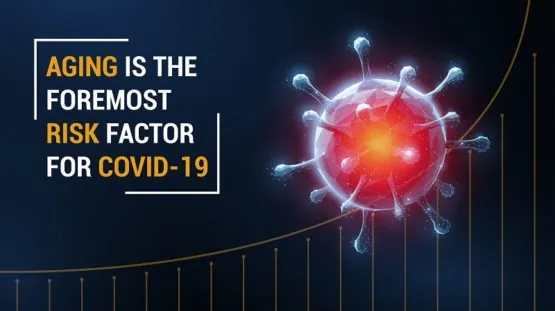There are many lessons to be learned from the current COVID-19 pandemic, particularly ones about how our society, healthcare system, and socioeconomic system can be better positioned and equipped to cope with future pandemics and other catastrophic events. One important takeaway, however, is already self-evident: age is one of the most significant risk factors for COVID-19.
According to the CDC, the risk of death from the disease starts rising sharply after age 40, rising dramatically with every additional decade of life.
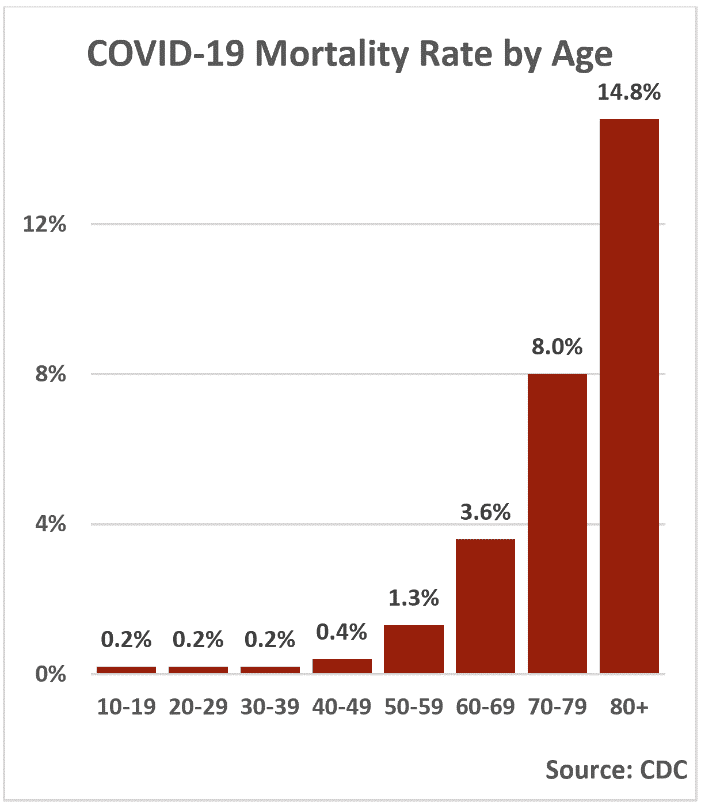
While COVID-19 is a novel, unexpected, and rapidly developing threat, aging has always been the leading risk factor for numerous diseases. Aging is the most important risk factor for cancer, for example, as the median age of a diagnosis is 66. The prevalence of cardiovascular diseases, the leading cause of death globally, steadily rises with age until it becomes a near certainty rather than a probability, as around 85% of octogenarians are affected. The same is true for influenza and pneumonia, chronic lower respiratory diseases, diabetes, and, of course, Alzheimer’s disease. The cumulative risk of death from these causes increases 100- to 1000-fold between the ages of 35 and 85; furthermore, they are also comorbidity factors in COVID-19.
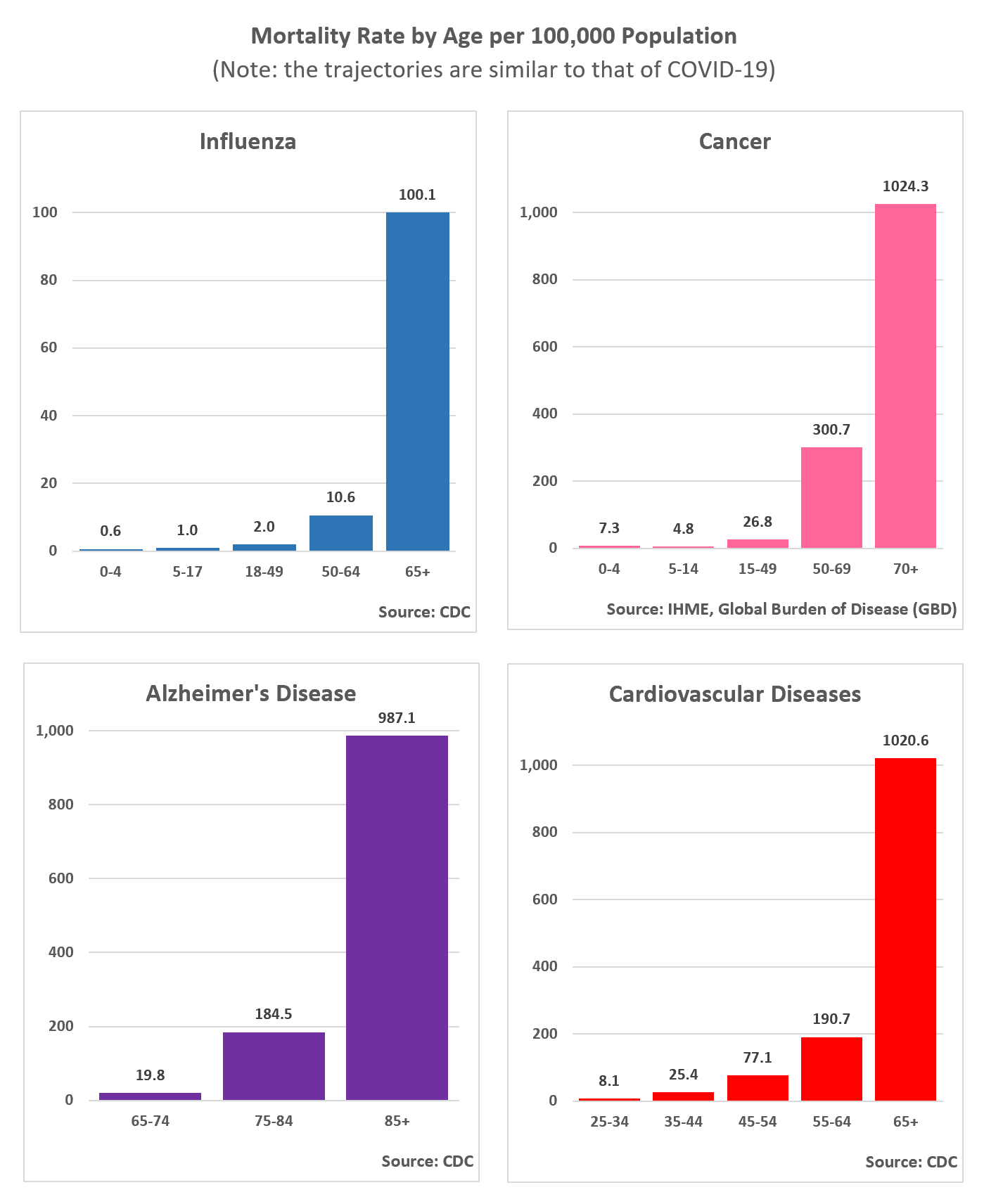
The elderly are also more susceptible to infectious diseases due to the gradual decline of the immune system with age. The dysregulation of immune response leads, among other things, to chronic inflammation, which, in turn, leads to even more diseases.
This makes aging a leading cause of mortality and suffering in the world, an observation that seems banal but is often overlooked as “a fact of life” that is given a free pass. While it is true that scientists and doctors all over the world are trying to stave off the onslaught of age-related diseases, the current approach of attacking each disease separately clearly has serious limitations. It has also failed to keep global lifespan on the rise – the increase has been minuscule in recent years, and these additional years of life are still blighted by age-related diseases.
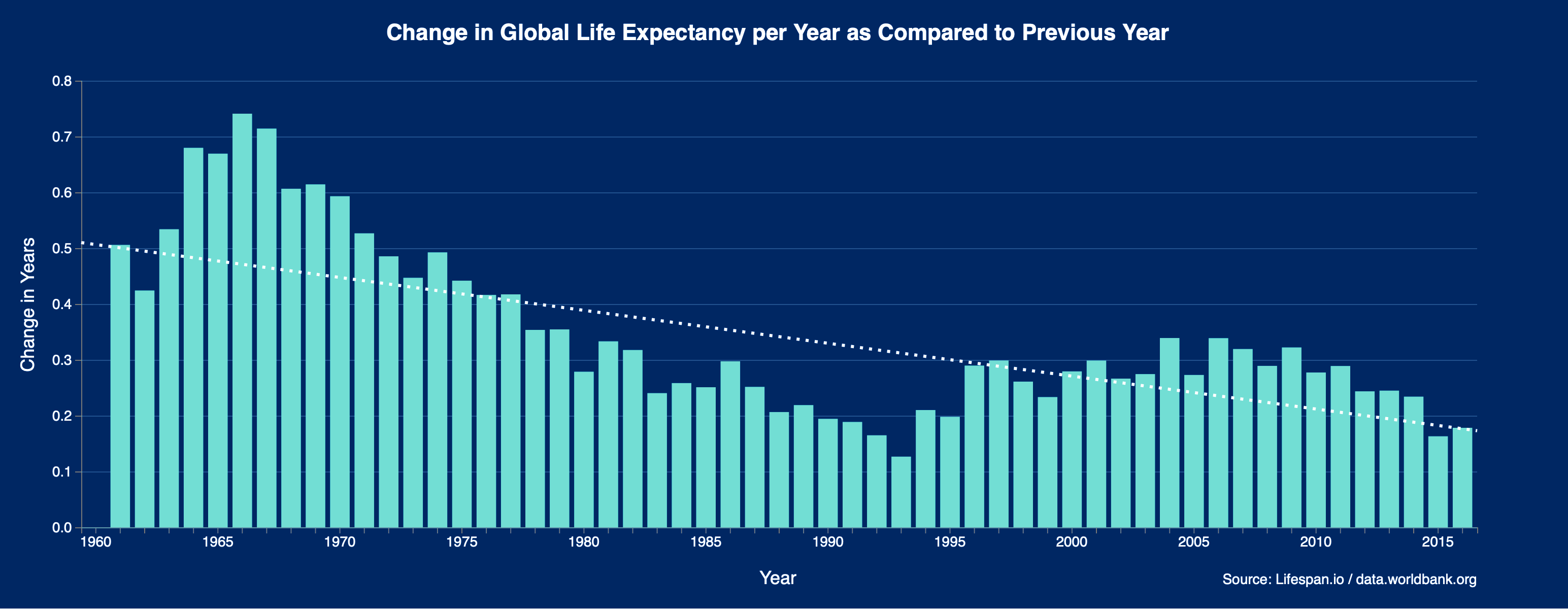
AGING AS A DISEASE
The longevity research community, on the other hand, believes that aging itself should be treated as a disease, using the whole arsenal of modern science. This is sometimes called an upstream approach, as it attacks the fundamental causes of aging rather than the symptoms. The question, then, is whether or not it is possible to use this approach to substantially expand lifespan and healthspan, the part of our life that is largely disease-free.
Nature itself reveals that aging has no “natural” pace but can unfold at different rates. Supercentenarians – people who are in their 110s – tend to suffer much less from age-related diseases and stay healthy and active almost up to their deaths. Their remarkable healthspan is followed by a quick decline rather than a long agony; this is known as compression of morbidity. Researchers are currently trying to understand and mimic these rare individuals’ biological machinery.
It is even more evident in some animals. One rodent species, the naked mole rat, has been described by scientists as a non-aging mammal. Its average lifespan is a whopping 30 years, five times longer than that of any other rodent. These animals seem to defy the Gompertz-Makeham law of mortality by not experiencing any significant increase in mortality risk with age. Studies of this and other long-lived species suggest that they are endowed with superior self-repair mechanisms. It is possible that we could recreate those mechanisms, as there seems to be no fundamental biological law that prohibits us from living much longer.
LIVING LONGER PAYS OFF
Still, some people express reservations about the quest for longevity, which usually revolve around the potential societal impact of a significant increase in lifespan and healthspan, such as its environmental effects, the risk of overpopulation, and its effects on economies that are already struggling to support their rapidly aging populations.
These questions are not without merit, but deeper analysis shows that most turn out to have compelling answers in support of increasing healthy lifespan. If you are mostly worried about the economic impact of prolonging life, remember that the current pandemic is on course to become the biggest economic catastrophe since the Great Depression. The expected costs are in the trillions of dollars. In a world where we all had the adaptive immune systems of young children but the immune memory of adults, however, COVID-19 might not have even made the headlines. We can decrease the threat of pandemics even more by delaying the onset of age-related diseases that are comorbidity factors for infections – which is what longevity research is all about.
Even beyond the context of this or any pandemic, research shows that extending lifespan and healthspan could be hugely beneficial for the economy. According to a prominent study, delaying the negative effects of aging would be economically superior to the existing approach of addressing each aging-related disease separately. Even a modest 2.2-year increase in lifespan, provided that people spend these additional years mostly in good health, would bring in 7.1 trillion dollars in economic value over 50 years. Directly addressing aging in this way would also thereby make our healthcare and social safety-net programs more sustainable and allow people to stay productive longer. This is a rare case in which moral and economic considerations coalesce.
THE SUCCESSES
Longevity research has made great strides in recent decades. Researchers have succeeded in increasing lifespan, restoring cellular function, and restoring fertility in mice; in rejuvenating human cells; in lowering the levels of senescent cells that promote chronic inflammation; and in many other key areas.
Recently, a group of scientists successfully reversed aging of the human thymus. The thymus, a small gland that produces T cells and is the backbone of our adaptive immune system, begins to shrink in size during childhood, in a process known as involution. As the thymus shrinks, it also loses its productivity, producing fewer and lower-quality T cells. Given that the thymus is at its largest and most efficient in children, this is likely a reason why younger children seem to be highly resistant to COVID-19.
By reversing this thymic involution, the researchers succeeded in reversing the biological age of all the patients. This change in biological age was measured using an epigenetic clock, a very accurate way of measuring the age of a person based on gene expression. The clock they used in the study is named the Horvath Clock, after its inventor. Over the course of the experiment, which lasted a year, patients became an average of a year and a half younger than they were at the beginning, for a net gain of 2.5 years – a small step for them, a giant leap for longevity research.
Additionally, stem cell therapy is a vast and vibrant field of study that has begun to produce some impressive anti-aging results. Stem cells can differentiate into more specialized cell types, replenishing the cell population in tissues or boosting our immune system. Just a few weeks ago, stem cells were successfully used in a medical study to treat COVID-19 patients by helping to regulate a major factor of COVID-19 mortality: the cytokine storm, an immune overreaction that is especially deadly to old people. This shows how relevant and serendipitously life-saving longevity research can be.
WHAT NEXT?
Success in extending human lifespan and healthspan will undoubtedly bring challenges to our society. However, human life and health should hold the utmost value, and we should not weigh unknown future challenges above the alleviation of the suffering of millions in the present – particularly when they are susceptible to a global pandemic. Yes, if we succeed in defeating aging, we will have to adapt. Our world will change profoundly, as it has done many times in the past, and there is no nobler reason for the world to change.
If we want to live longer and healthier lives, unburdened by diseases and better protected from epidemics, much more needs to be done. Most aging research is fundamental science. The private sector, driven by material incentives, can only take us so far. Governments and charitable foundations must pick up the gauntlet too. Enormous resources have been poured into fighting the consequences of aging, sometimes to no avail. It’s time to start fighting its causes.

